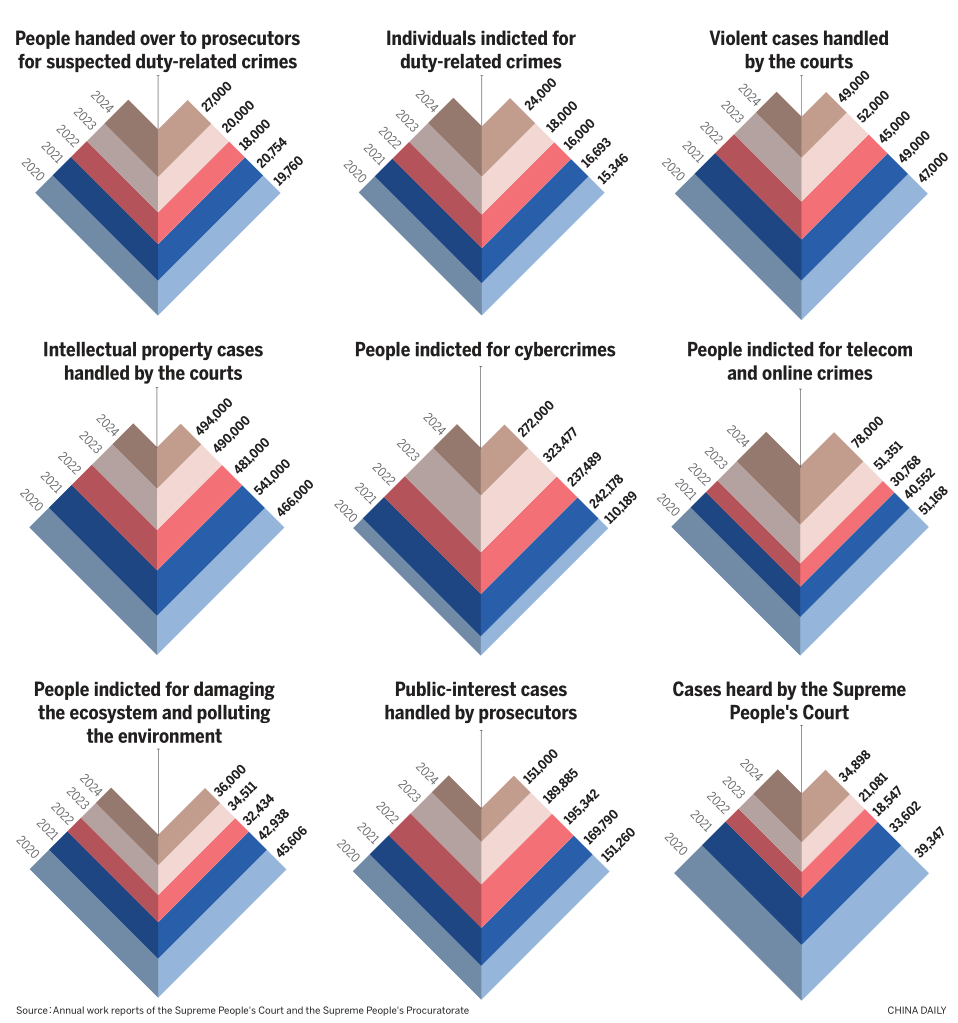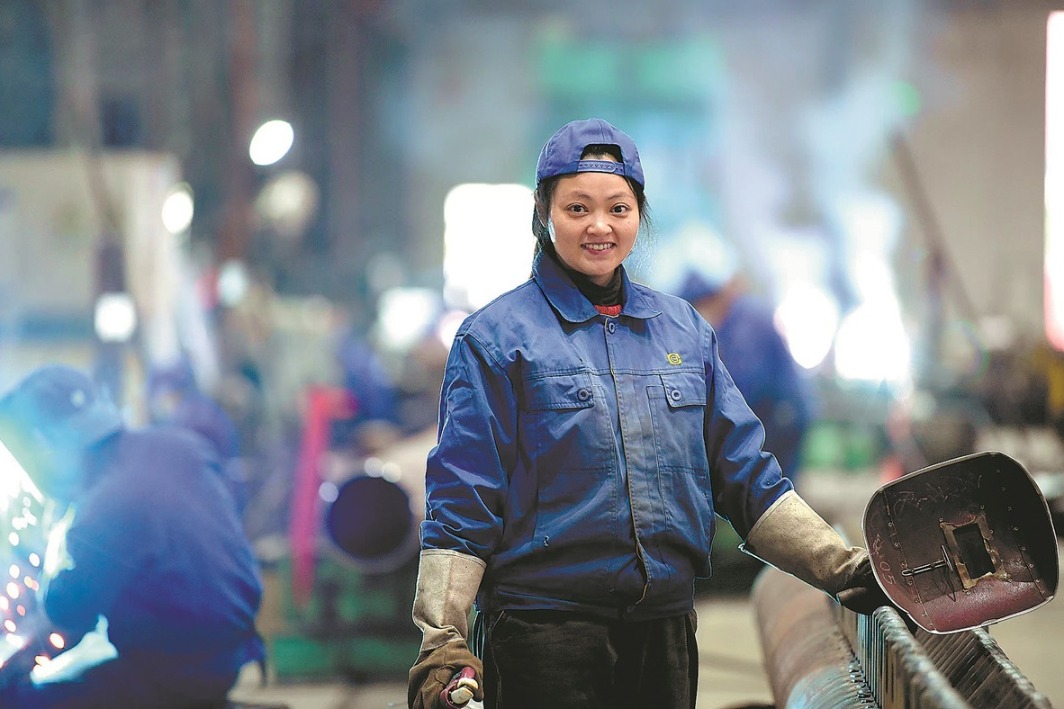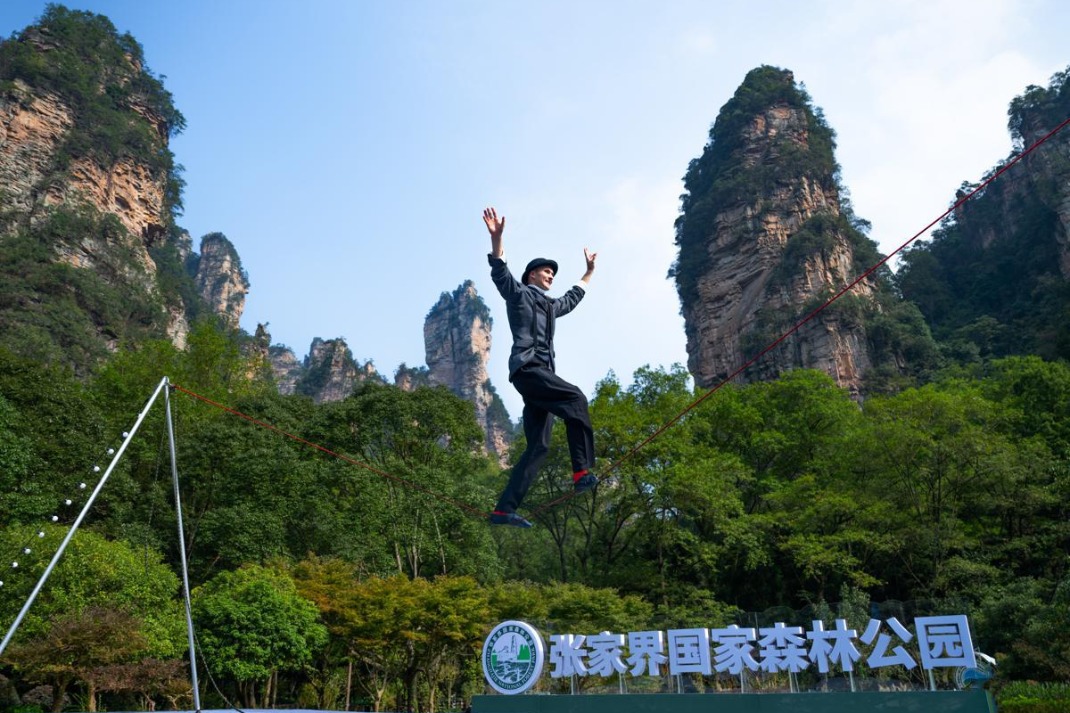Legal system refinements beef up anti-graft fight
Amended Criminal Law, tougher penalties for bribery offenses bolster corruption crackdown


Over the past five years, China has implemented a series of measures to streamline its anti-corruption fight, refine the legal framework and optimize its institutional structures.
During the 14th Five-Year Plan period (2021-25), the country amended the Criminal Law while cracking down on people who accept bribes and also increasing penalties for offenders who offer them.
Under the revised law, which took effect in March 2024, those offering bribes repeatedly to multiple people, or parties involved in major construction projects related to the environment, finance, social insurance, security, food, drug, disaster relief, education or healthcare sectors face severe punishment.
Shen Chunyao, an official from the Standing Committee of the National People's Congress, China's top legislature, emphasized that amending the law was intended to meet anti-corruption demands, and added that "the soft punishment" for bribe-givers was not useful for breaking the chain of bribery.
Shen added that amending the law was also a strict implementation of the central leadership's anticorruption requirement on strongly cracking down on bribery through legal measures.
Since the 18th National Congress of the Communist Party of China in 2012, the central leadership has stressed the significance of rigorous Party governance, with unprecedented efforts made to carry out the guiding principles of the eight-point code and other measures taken to combat corruption.
The Party's eight-point code refers to the improvement of Party and government conduct while strengthening ties with the people. Its goal is to promote thorough and stringent self-governance within the Party, thereby effectively combating corruption from the beginning.
Warned, educated
While imposing timely disciplinary punishments on those who violate the guiding principles of the code, serious cases where individuals are suspected of duty-related crimes — including bribery and embezzlement — have also been exposed online to warn and educate Party members and government officials.
Data released by the National Commission of Supervision, the country's top anti-corruption watchdog, showed about 26,000 people were investigated for offering bribes to others in 2024. Of those, 4,271 were deemed to be serious cases, with suspects handed over to prosecutors for further review.
From January to June of this year, 16,000 suspected bribe-givers were placed under investigation, and 1,990 referred to prosecuting authorities, according to the data.
"Both receivers and givers of bribes seriously undermine social fairness and justice," said Ruan Qilin, a law professor at the China University of Political Science and Law, while stressing the need to combat bribe-givers by revising the law.
"They also harm public interests and order, and damage the credibility of government departments," he said.
Ruan said if the penalties are not severe enough, they fail to serve as a deterrent, which makes it difficult to curb bribery.
The amended law has sent a clear message that bribe-givers must pay a higher price for their wrongdoings, he said, adding that all individuals and organizations should enhance awareness of the rule of law and compliance in their business operations.
"They must not seek improper benefits through bribery or undermine a fair and competitive market environment," he said. "Engaging in bribery will ultimately be counterproductive, leading to disgrace and strict legal penalties."
The amended law also highlights the fight against corruption within private enterprises, which represent about 93 percent of businesses across China.
A few charges only applied to State-owned employees should be expanded to employees of private companies, the NPC Standing Committee said, adding this will ensure equal treatment of all business entities by the rule of law.
Employees of private businesses who intentionally harm their employers' interests and cause huge financial losses — such as illegally making profits for friends, discounting stocks, and selling company assets — can now be held criminally liable under the amended law.
Harsher penalties
Since the law was optimized, Chinese judicial authorities have intensified the crackdown on corruption by harshly penalizing bribe-givers and those harming the interests of private employers.
In November, for example, a businessman surnamed Li in Leibo county, Sichuan province, was sentenced to three years in prison, with a four-year reprieve, for offering bribes to the then head of the local transport bureau.
The people's court in Yuexi county found that from 2021 to 2023, Li bribed a bureau official surnamed Zhang with more than 3.79 million yuan ($531,278) in three local construction projects. The bribes were made through cash payments, covering parking space purchase costs, and gambling activities. Zhang's case was handled separately.
Also, after the amended law came into force, the Supreme People's Court, China's top court, released details of eight notable cases involving bribe-givers to reaffirm the firm stance against corruption.
In one case, a defendant surnamed Yang from Sichuan province, was sentenced to five years and six months in prison and fined 200,000 yuan for offering bribes to officials in local public security and government departments multiple times from 2004 to 2018.
Yang organized gangster activities and wanted the officials to help cover up his offenses, the top court said, adding that the sum of bribes he offered was more than 1 million yuan.
He also pleaded guilty to organized crime charges, and ultimately received a 25-year prison term with confiscation of all of his personal assets, the court said.
While noting it was a typical case where the defendant repeatedly offered bribes to a number of people, the top court also highlighted the importance of eradicating breeding grounds for corruption and mafia-like activities.
Supervisory procedures
In addition to boosting the fight against bribery, since June the amended Supervision Law has helped standardize supervisory procedures.
Before the law was modified, people suspected of corrupt actions underwent supervisory investigation, with a three-month detention limit. The detention could be doubled in some special circumstances, but the extension period could not exceed three months.
To address time constraints in handling major and complicated cases, the amended law added a new provision. For suspects in serious situations, such as those facing a possible sentence of 10 or more years in prison, an additional extension of two months was permitted.
However, this only applies if the supervisory body is unable to complete the investigation. The additional extension needs to be approved by the National Commission of Supervision.
"It was necessary and timely to revise the law. The new version is conducive to improving the supervisory framework and regulating the behavior of supervisors," said Tong Dehua, a professor from the Zhongnan University of Economics and Law in Hubei province.
He emphasized the need to integrate the concept of the rule of law into supervisory procedures and throughout all anti-corruption efforts.
"The rule of law is an important achievement of human political civilization, a lofty ideal long pursued by the public, and a crucial safeguard for promoting Chinese modernization," he said.
While calling on supervisory departments to uphold the belief in the rule of law, strengthen their sense of responsibility and faithfully fulfill their duties to investigate all types of new and hidden forms of corruption, he also urged them to exercise their power in accordance with the law, impartially, and with integrity.
Fugitives returned
Thanks to years of development of the legal system, China has accelerated progress in the return of fugitives who have fled abroad as well as the recovery of illicit assets, according to the National Commission of Supervision.
In July, Zhou Jinghua, a former businesswoman on China's list of 100 most-wanted fugitives, was extradited to China from Thailand. Previously, a large number of fugitives were repatriated to China or had voluntarily surrendered. Zhou was the first fugitive on the list to be extradited to China.
"The methods for returning fugitives have gradually shifted from relying primarily on persuasion to comprehensively employing various approaches such as arrest, deportation and extradition. This indicates China's international anticorruption efforts are becoming increasingly standardized," the commission said.
While ordering supervisory authorities nationwide to enhance the awareness of the rule of law, and comply with procedural and evidence standards in pursuing fugitives and recovering illegal proceeds, the commission also urged them to improve the law enforcement capabilities by fully respecting the judicial sovereignty of other countries and international rules, as well as strictly implementing the revised Supervision Law.
"Anti-corruption international cooperation is inseparable from both domestic rule of law and foreign-related legal engagement, so adhering to the rule of law mindset and approach is imperative," it added.
caoyin@chinadaily.com.cn

- Legal system refinements beef up anti-graft fight
- Xi's proposals draw broad acclaim
- China rolls out eSIM phone services nationwide
- Global Leaders' Meeting on Women concludes in Beijing
- Renowned global scholars discuss key role of China studies at Shanghai event
- Global experts praise China for innovations in sustainable agriculture





































